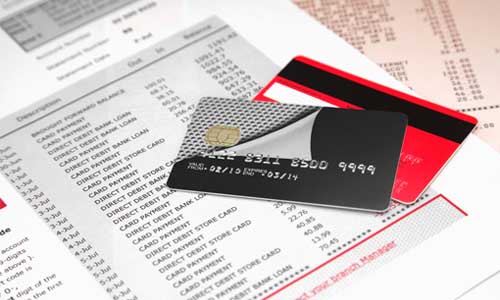Credit cards are like a double-edged sword in today's fast-paced world of finance. On one hand, they offer unparalleled convenience and flexibility, enabling us to make purchases at the click of a button, anytime and anywhere. On the other hand, if not used responsibly, they can quickly lead to debt, high-interest charges, and a tarnished credit score. In the world of credit cards, timing is everything, and paying your bill on time can save you from incurring late fees, penalty interest rates, and other financial pitfalls.
Are you struggling to navigate the murky waters of credit card payments? If so, you're not alone. In this article, we will take a deep dive into the world of credit card payments and share practical tips and strategies to help you master the art of paying your credit card bill on time, stay in control of your finances, and avoid costly mistakes. Whether you're a seasoned credit card user or just starting, this article will equip you with the knowledge and tools you need to become a credit card payment pro!
When to Pay Your Credit Card Balance?
To assist you in making an informed decision, we have provided several scenarios for you to consider regarding the optimal time to pay your credit card balance. Let's start with an example that illustrates how paying a portion of your monthly balance halfway through the billing cycle can yield greater benefits.
Scenario 1
Mr. Firoz is a credit cardholder with a balance of AED 2,000, of which he paid AED 1,000 at the end of his billing cycle. It can be inferred that Mr. Firoz would have had a balance of over AED 2,000, including the daily interest fee in the billing cycle. In contrast, Mr. Rashid Iqbal also has a balance of AED 2,000 but chooses to pay off AED 1,000 in the middle of the billing cycle. As a result, his average balance is over AED 2,000 only until halfway through the billing cycle and drops to around AED 1,000 afterward. It is evident that Mr. Rashid Iqbal would pay less interest over the billing cycle and save significantly more.
Scenario 2
If you prefer to pay your credit card bill in full to avoid interest charges altogether, you can take advantage of the grace period. Like other forms of credit and loans, each credit card billing cycle includes a grace period, which is the time between the end of the cycle and the due date for your payment. During this period, you can avoid interest charges by paying off your entire credit card balance before the due date.
Scenario 3
If you are already struggling with mounting debt, instead of worrying about when to pay your credit card bill - at the beginning or end of the billing cycle - you should focus on paying off what you owe. However, if you are a credit cardholder who is not burdened with excessive debt or a poor credit score, waiting until close to the end of the billing cycle to pay your credit card balance in full can help increase your overall wealth.
Most credit card companies in the UAE allow you, the credit card holder, to adjust your billing period so that your due date coincides with the time your salary or remuneration is credited to your account. This can help you maintain a low credit utilisation ratio, which is a percentage of your total available credit. It's important to ensure that your credit utilisation ratio stays below 30%, regardless of when you pay off your credit card balance, to maintain and improve your credit score.
Policybazaar UAE – Helping you navigate the wilderness of the insurance world

- Latest News & Update









